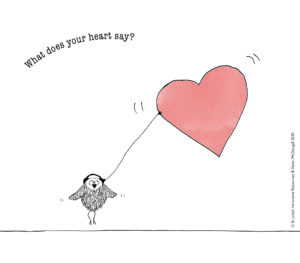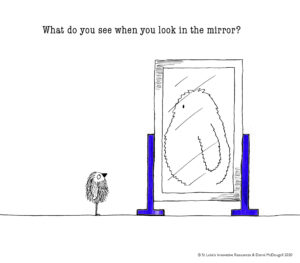Eating Disorders, and mental illnesses come in all shapes, sizes, colours, ages, race and social economic levels. Throughout my lived eating disorder experience I have had to deal with weight stigma and being told things like “you don’t look that sick or underweight”, “your BMI is too high for our program”, or “it’s not like you are taking diet pills or vomiting”. All of these statements had an impact on my mental health, self-worth and made accessing support all the more challenging.
In our society there continues to be a thin ideal, we see this on Facebook, Instagram, in the abundance of weight loss and diet pill ads, in advertising and in the words spoken in our society about bodies and appearance.
If I am honest, in times of stress I do have thoughts about changing my body and how that would help deal with stress, emotions and feel better in myself. What I have learnt through my experience is that no number on the scale can help me deal with stress or emotions. If anything, the number on the scale leads to more stress, low self-worth and distress and perpetuates the negative messages about body image that present in society and at times within myself.
When I find myself thinking that changing my body is the answer to stress I try to take a step back, remember what my eating disorder took from me, and what being in a better space has given me. At these times, I reflect using Eating Disorder and Other Shadowy Companions cards.
 Cards that question “What does the eating disorder voice say?” allow me to notice and acknowledge unhelpful thoughts. The card “What does your heart say” reminds me to listen to my heart and reconsider what actually will help me and allow me to reject the internal and external messages about changing my body being the answer.
Cards that question “What does the eating disorder voice say?” allow me to notice and acknowledge unhelpful thoughts. The card “What does your heart say” reminds me to listen to my heart and reconsider what actually will help me and allow me to reject the internal and external messages about changing my body being the answer.
We are bombarded with messages about body dissatisfaction and given solutions we can buy to “fix” or change our bodies. In this environment it is natural to unconsciously value the thin ideal, impacting individual body image of all of us and how we view people seeking support with eating disorder recovery. I encourage you to reflect on your own bias towards your body and the bodies of others. This is not about judging ourselves for having these biases, it is about being aware of them and actively being a different voice both internally and externally to promote better body image for all.

A card that can help open up conversation about body image is “What do you see when you look in the mirror”. This can support personal self-reflection to understand own biases as well as be a tool to understand the experience of people we are supporting. A card that can help reject the messages of society “How do you know what is worth listening to” and figure out for ourselves which voices, opinions and advice to listen to.
I know that an eating disorder is part of my experience, and it is also an experience of our society, whilst our society cannot be diagnosed with this. I am not perfect, and do not have everything figured out. But my hope is that one day we will live in a world where all bodies are valued, all bodies are supported and I am at peace with my body more than I am not.
Guest blog by Danni McDougall, author of Eating Disorders and Other Shadowy Companions, to mark Body Image and Eating Disorders Awareness Week (BIEDAW) September 5th – 11th
Visit Danni’s website: https://eatingdisordersupport.com.au

